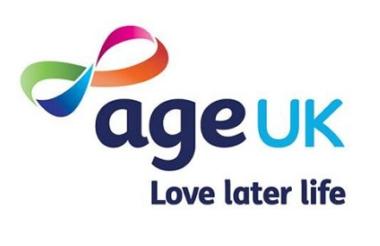Age UK and an agency breached the Code of Fundraising Practice after an individual repeatedly received donation bags despite a sign that said “addressed mail only”.
The Fundraising Regulator has today published five investigation reports after complaints about Age UK, Cash for Kids, Crawley Open House, Lifeline Ministries and WaterAid.
The regulator publishes summaries of its investigations on a quarterly basis.
In an email today Gerald Oppenheim, chief executive of the Fundraising regulator, reminded fundraisers that levy invoices are being sent out and urged charities to pay.
He also said: “In July we saw an increase in the number of complaints made to us compared to the previous three months, and initial figures for August suggest that complaints are beginning to return to pre-pandemic levels. This is reflective of some paused fundraising activities resuming after nationwide lockdown.”
Age UK and The National Door To Door Company
Between 2017 and 2019 the complainant had donation bags posted through their door four times despite a sign asking for “addressed mail only”.
When the individual raised the issue with Age UK in 2017 their address was added to a “do not call” list, but continued to receive bags.
The Fundraising Regulator’s report said: “We found that in continuing to deliver charity bags to the complainant, the agency breached the requirements of the code not to deliver to households with a ‘no charity bag’ sign or words that indicated that the householder does not wish to donate by this method. We also found that in continuing to deliver to an address that had been marked as restricted, the charity engaged in unreasonably persistent fundraising.”
It added that: “We found that the charity failed to respond to the concerns raised appropriately, as it issued the complainant with four similar responses, none of which acknowledged the failings in its process.
“We found that the charity breached the code on monitoring third parties by not taking all reasonable steps to ensure its agency’s ongoing compliance with the code, nor had it demonstrated sufficient learning from complaints.”
The entire housing estate has now been removed from the distribution route.
The regulator has recommended that the charity and agency review their processes. It has asked them to write back with an update within two months.
Nick Smith, head of retail at Age UK, said: “We are very sorry about the experience this complainant has had, and have apologised to them for the errors made and for the frustration they have faced.
“At the time covered by the complaint, we made use of a bag distribution service to collect donations for our charity shops. Our agreement with our retail bag distributor clearly stated that bags should not be delivered to addresses where there are signs stating they are not welcome. However, these instructions were regrettably not followed.
“We accept the decision by the Fundraising Regulator and have reviewed their recommendations to ensure that this does not happen again. We are also no longer working with the supplier involved in this case.”
LifeSprings Ministries
The Fundraising Regulator said that the complainant’s church donated £4,000 to LifeSprings Ministries as part of an urgent appeal for an event due to take place in India in 2018, but the event was postponed four times and has not taken place.
However, the charity initially refused to refund the donation. It then offered to repay the donation in instalments, but the individual declined and raised a complaint with the Fundraising Regulator.
The regulator said there was no breach regarding how the funds were raised and used, but that charity should have explained the risks involved in the donation.
Its report said: “We found the charity had breached the code by failing to explain the risks of donating funds to an event such as this, such as the risk of a postponement. The charity should have outlined the risks regardless of whether or not it felt those donating would have an understanding of the risks inherent in this type of event. We also found the charity had not explained what would happen to the funds if the required amount was not raised, or if the target was exceeded.
“Additionally, we found the charity did not have a complaints policy in place at the time the complaint was submitted, which is a further breach.”
Cash for Kids
Someone complained about Cash for Kids because they were concerned that a campaign encouraging people to nominate their boss for a bungee jump could lead to bullying.
The Drop the Boss campaign run by Cash for Kids in 2019 included the wording: “DO YOU WANT TO GET YOUR OWN BACK ON YOUR BOSS? Now it’s time to get your revenge!”
The regulator said that its investigation found there were adequate health and safety measures in place. It also said the charity had investigated and responded to the complaint appropriately.
However, it had breached the code by “failing to clearly identify the fundraiser within the campaign and who was expected to meet the fundraising target”.
Crawley Open House
Someone complained to the Fundraising Regulator because Crawley Open House did not tell them they would need to apply to the local authority for a license to run a bingo night to raise money for the charity.
The regulator said: “Given the complainant’s pre-existing relationship with the charity as a service user and in providing the complainant with a volunteer to assist with the event, we found that the charity had given appropriate support for running the event. Therefore, the charity did not breach two sections of the code which relate to providing appropriate support to volunteers.”
It said the charity had made some mistakes in handling the complaint, but did not breach the code.
WaterAid
The complainant asked WaterAid to stop contacting a relative who had shown signs of memory loss but was concerned when the individual set up a direct debit to the charity.
It turned out that the individual had been prompted to call the charity after seeing an appeal on television.
The complainant provided a copy of their Power of Attorney for the individual’s finances and said that the individual now had dementia.
WaterAid apologised and cancelled the direct debit. It had a system in place to pick up issues like this fortnightly and has increased this to weekly.
“The charity said that, as a result of our investigation, it will be looking at implementing an automated solution that allows it to investigate these scenarios more quickly,” the regulator’s report said.
The regulator concluded that the charity acted appropriately, did not breach the code and has not made any further recommendations.
Editor's note
This story has been updated to include comment from Age UK.
Related articles












